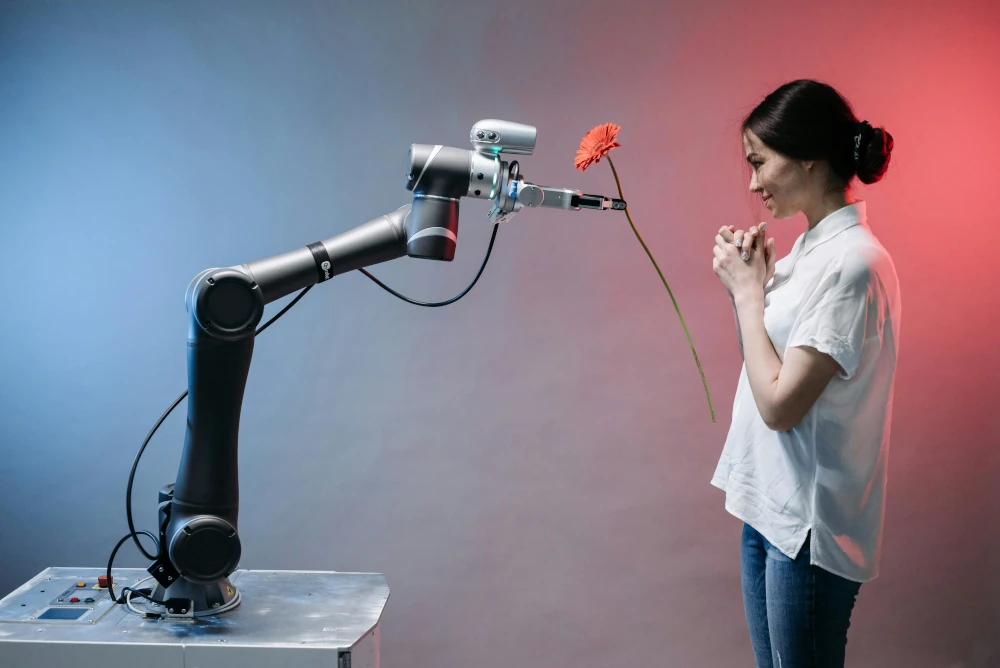The use of AI is extending rapidly to all industries, providing the benefits of automation, personalisation, and efficiency. AI-based chatbots are present in almost every respectable business, offering an improved customer experience while companies leverage them for fast data analysis.
Although the trend of AI in the business sector has been amplified only recently, organisations got on board quite fast and contributed to 370 billion USD of AI-enabled ad expenditure worldwide. The hype enabled companies to approach intelligent marketing and a creative side of branded AI, securing a historical moment of advertisement in the modern age.
Since numerous industries welcome a boom in sales and media coverage through artificial intelligence, the automotive sector can also leverage machine learning and automation to sustain vehicle production. Here are some techniques to create the best AI marketing campaign.
AI involvement in product development

Before we dwell in the world of marketing, we can share how AI helps the product development sector, eventually increasing customer trust. When it comes to creating new designs and structures for machines, the process involves extensive research and endless trial and error. With AI, this can become faster and more efficient while enhancing vehicle improvement.
AI can change the automotive industry by reducing human errors and improving drivers’ experiences. Predictive maintenance, autonomous vehicles, and improved safety are some of the best uses of AI in this industry. Offering safety and top-notch features for drivers is important, considering how many are involved in a traffic collision and have to get the help of advisors for compensation.
Therefore, as AI can solve such problems and adjust the car’s driving performance based on driver behaviour, we may see fewer accidents and more responsible users. Now that we’ve got the brand trust, here’s how to impress customers.
AI and customer segmentation
Customer targeting is the most critical marketing aspect in the automotive industry, especially since social dynamics have changed people’s opinions about driving. Many young people avoid cars due to their contribution to climate change, while the need for walkable cities and public transit is increasing among younger generations.
Therefore, vehicle brands must use AI for perfect customer segmentation, which includes data analysis on patterns or browsing behaviour. These datasets are important for creating hyper-personalised ad campaigns, such as email content that resonates with people’s interests in cars, including their environmental impact, efficiency, and prices.
AI and content creation
Artificial intelligence is very useful when creating content because it offers marketers all the resources to let their imagination roam free. This strategy is also best when it comes to specific vehicles, like electric ones, which require proper presentation and focus on their environmental benefits. That’s because these ads are usually prone to greenwashing due to wrong approaches (or intentions).
Unique social media posts are valued on platforms like Instagram and X, and their high quality will be important to cater for the best campaign. Of course, it’s best to follow your country’s regulations on AI-generated images and videos and make sure people know what they’re looking at. The biggest mistake a company that uses AI can make is to act like they own such content.

AI and programmatic advertising
Programmatic advertising is one of companies’ latest and most successful marketing strategies. AI leverages traffic data and online display to scale impressions and drive ROI. Marketers use this method to improve their media buying initiatives through the use of an algorithm.
Setting your programmatic advertising goals is much easier when you already know your audience, as this can help determine long-term goals. Moreover, programmatic advertising also allows for the human touch to improve the customers’ experience by controlling the allocation of marketer’s skills to optimise the buying strategy.
AI and predictive analysis
AI can drive the creation of innovative sales strategies through predictive analysis. This feature is renowned for AI technologies since algorithms analyse and offer complete reports on historical data, through which they can form future outlooks. We already know that autonomous driving, in addition to off-highway vehicles and robotics, belongs to the future of the automotive industry, but how will companies propose innovations to reach that point?
This is where AI comes in and provides valuable information on potential trends, and strategies marketers can use to create unique collaborations. At the same time, AI-predictive analysis can help brands spot potential buyers, even the first who are willing to try self-driving cars and establish a new customer segmentation to be one step ahead of other companies.
AI and virtual customer service assistants
We’re already used to AI chatbots, but the technology’s integration into sales-related information is still new. BMW is one of the leading brands that is approaching this strategy, allowing virtual assistants to guide customers towards products and services based on their needs.
AI-based virtual assistants are also great for streamlining engaging communication, in which companies can have meaningful connections with customers based on personalisation. Although now it seems like AI lacks the human factor, future virtual assistants might be as funny or intuitive as humans, making it easier for clients to get accustomed to this newness.
BMW’s smart voice assistant can offer personalised recommendations on driving a car, choose the best drive settings, and help minimise fuel consumption in real-time. This will allow customers to interact with their vehicles, which can lead to efficient driving behaviours and fewer traffic problems. The trustworthy AI is based on a large language model (LLM) that provides information from internal BMW documentation, making it a helpful addition to first-time car owners.
Do you think AI can innovate the automotive marketing sector?
Artificial intelligence is everywhere, supporting innovation and human creativity. As more companies adopt this technology, marketers have also changed their approach to promoting vehicles and brands. AI is now used to generate car content and analyse massive amounts of data for car manufacturing improvement and voice assistants. In the future, we might be able to own self-driving cars whose AI assistants will make our lives and commutes easier.


